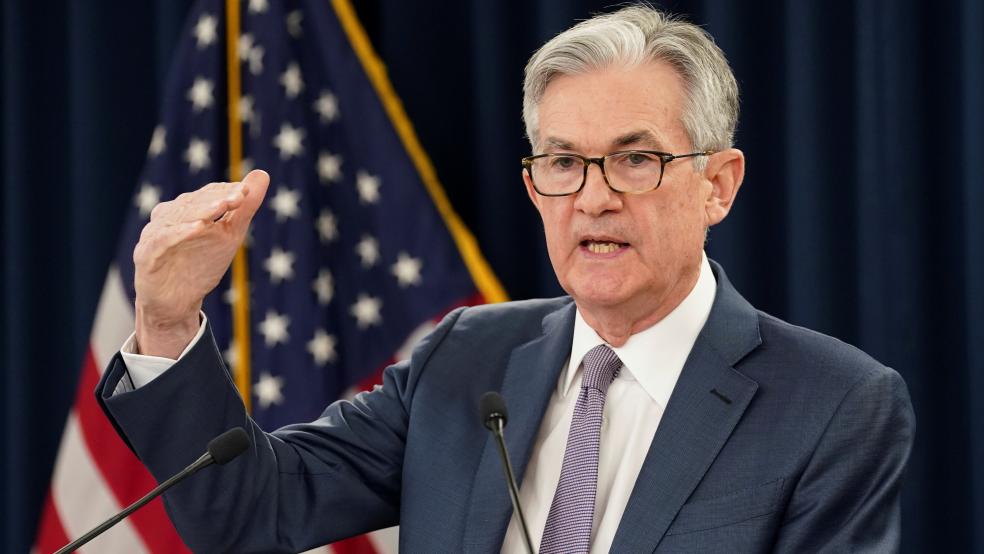Federal Reserve Chairman Jerome Powell warned Wednesday that the U.S. economy could suffer prolonged damage if Congress doesn’t provide additional aid to address the coronavirus pandemic and its toll on businesses and households.
“Additional fiscal support could be costly, but worth it if it helps avoid long-term economic damage and leaves us with a stronger recovery,” Powell said in a videoconference hosted by the Peterson Institute for International Economics. “This tradeoff is one for our elected representatives, who wield powers of taxation and spending.”
Powell cautioned that the pandemic “is the biggest shock our economy has felt in modern times” and that the economic outlook remains risky and “highly uncertain.” He said that the Fed will release a survey this week showing that, among people who were working in February, nearly 40% of those in households making less than $40,000 a year had lost a job in March.
The Fed has acted aggressively to support the economy and the financial system, and Powell again pledged that it would continue to do so. He added that the fiscal response so far — nearly $3 trillion worth of support for businesses, households, health-care providers and state and local governments — has been “the fastest and largest response for any postwar downturn.”
But he warned that the recovery could be slow — and that the scars could take much longer to fade without additional action. “The record shows that deeper and longer recessions can leave behind lasting damage to the productive capacity of the economy,” he said. “Avoidable household and business insolvencies can weigh on growth for years to come.”
Worry about the debt later: Congress is divided along stark partisan lines over what additional steps to take in response to the crisis, and how quickly they may be needed. House Democrats have proposed a $3 trillion package of additional relief and plan to vote on it Friday, but formal bipartisan talks are on hold as President Trump and many Republicans say they prefer to wait and see how the $2 trillion CARES Act passed in March is working before considering any new legislation. Some Republicans have also expressed concerns over additional spending given a rapidly rising national debt and a deficit that is expected to reach nearly $4 trillion this year, about four times higher than was projected just a few months ago.
Powell said Wednesday those debt concerns can — and must — be addressed, but not until the pandemic has passed. “I do think the time to do that is during good times, when the economy is strong and unemployment is low,” he said. “Now, when we are facing the biggest shock that the economy has had in modern times, is, for me, not the time to prioritize considerations like that. I do think that we can come back to them fairly quickly, which is to say a few years down the road when the economy is well and truly recovered or at least mostly recovering.”
A no on negative rates: Powell again dismissed calls for the Fed to embrace negative interest rates, an extraordinary policy move that some investors have anticipated — and which Trump again advocated on Tuesday. “The committee’s view on negative rates really has not changed,” Powell said. “This is not something that we’re looking at.”
Why it matters: Fed chairs are usually circumspect in offering Congress any public guidance on fiscal policy, which falls outside their monetary policy purview. Powell may have technically steered clear of crossing that line, but he left little doubt where he comes down on the question of more stimulus.





